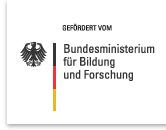Transition management for sustainable water management. Sustainable water supply and wastewater disposal infrastructure in municipalities (July 2007-December 2009)
What was analysed?
The current municipal water management is based on a central system of water supply and wastewater disposal facilities and networks which had been developed over a long period of time. Until today, centralised and uniform systems were considered to have decisive technical and economic advantages over semi- or decentralised systems in areas with mid to high population densities. This conception changed with the emerging challenge of demographic change. The phenomenon of shrinking population numbers in cities and regions in former East Germany revealed a new set of problems as quantitative functional thresholds were reached as a result of under-utilisation. Since this trend can also be found in former West Germany, it is worth taking a closer look at individual cases and investigating urban service systems' scope for transformation. The feasibility of intelligent system solutions, in this case the linking of centralized and semi-centralized system alternatives, was analysed in several model municipalities. The analysis was conducted by using selected methods of participative scenario planning. This consultation involved cities which were currently undergoing a process of contraction and cities which are experiencing strong fluctuation in certain areas. Additionally, cities with growing populations and, thus, stagnating or rising consumption were investigated.
Special challenges facing municipal politicians and administrators
Decision-makers in many German cities are facing the challenge of elaborating guiding principles to encourage development in municipalities where populations are (tendentially) shrinking. Already today, urban redevelopment and urban deconstruction concepts are embedded in overall urban development concepts. In order to manage the consequences of demographic change in a way that is compatible with urban development and the residents' needs, a renaissance of long-term, consistent urban development planning and policy is indispensable. However, current studies highlight considerable deficits with respect to the conceptual content of these guiding principles. On the one hand, these studies report a remarkable planning uncertainty in many places regarding the mid- to long-term perspective. On the other hand, modified strategies often fail to integrate technical infrastructure. Furthermore, the situation is aggravated by restrictions concerning aid objectives and aid modalities for implementing urban deconstruction and redevelopment concepts. These restrictions often do not take into consideration the necessary adjustment of the technical infrastructure. This is exacerbated by the fact that the necessary classification of follow-up costs for subsequent urban renewal is a difficult undertaking. Against this background, sharing experience is of greatest importance. Equally important to municipal players are the following aspects: Firstly, the formulation of ideas concerning practicable alternatives to existing technical structures, secondly, the assessment of urban planning and financial conditions associated and lastly, the generation of required expertise in local government administration. This demands close cooperation between municipal engineers, architects and planners.
Specific challenges for companies involved in residential water management
Facilities and networks increasingly operating under capacity represent complex problems for supply and waste management companies. In the foreseeable future, several cities and regions must undertake redevelopment and reconstruction measures in their networks and facilities which reach the limits of economic viability. However, entirely new types of technology should be considered as well. Thus, the benefits of alternative systems could be weighed against the continuing operation of current facilities. This argument contributes to current debates about modernisation of German water management.
Intelligent combinations of centralised and semi-centralised system alternatives
All things considered, demographic transformation in combination with falling capacity utilisation of existing facilities highlights the necessity to contemplate possible transformations of existing systems. In this context small units and self-sufficient systems may gain importance. In order to enable the transition to semi-centralized facilities, existing systems need to be successively expanded and adapted. This must be done without endangering the functionality of the system as a whole and must satisfy economic requirements. At the same time this transformation must occur in a ecologically and socially feasible manner. The development of innovative water supply and waste management strategies and concepts is particularly essential in shrinking regions. Both, municipalities and their water management companies must meet this challenge.
Innovations as opportunities for municipal water supply and wastewater disposal companies
In the past two decades, Germany has featured several remarkable innovations regarding alternative water supply and wastewater disposal technology. However, until today these innovations have only been implemented in a few, small-scale pilot projects. Besides, it needs to be considered that the specific experiences from these experimental housing and urban development projects do not provide sufficient information to draw general conclusions. Moreover, the information provided is not sufficient to allow assumptions whether the innovations should be implemented on a larger scale or be combined with existing facilities and networks.
Pilot projects have clearly illustrated that it is generally possible to differentiate between resources and to innovatively combine wastewater and freshwater. It is now important for German municipalities to make reference projects available which highlight the construction of more flexible supply and waste management structures (in particular in existing structures). Ideally, these reference projects take into account the mid- to long-term transformation of central components and have the potential to inspire other cities to follow their example. Three considerations are central to this point:
- From a macro-economic perspective, these are flexible and sustainable solutions which aim for closed nutrient cycles. Furthermore, they seek to promote energy recovery of wastewater which is particularly important with regard to rising energy prices. Already, the resources of fertilizing mineral phosphorus are exceedingly scarce. This highlights the importance of extracting phosphorus from wastewater so plants can easily absorb its nutrients.
- From a technical and economic point of view wastewater is considered a resource. Intelligent system solutions are characterised by material flow reductions (eco-efficiency), greater flexibility and, partly, by shorter pipelines. Additionally, in the long term, when compared to conventional system solutions (in terms of technological regulations), these systems feature increased economic efficiency (energy exploitation). Furthermore, quality-assured rainwater as a drinking and process water resource enables the creation of an entirely new system design vis-à-vis classic freshwater provision.
- Additionally, the long-term transformation of existing systems opens up a range of possibilities which exceed the boundaries of German municipalities including their supply and waste management companies. Integrated solutions for supply and waste management may also serve as an example for countries in other parts of the world, thus, helping to alleviate the global water crisis. In doing so they could assist to secure Germany’s standing on the global market. German cities and their supply and waste management companies have the potential to inherit a crucial and pioneering role in this field.
The project's objective
- Long-term sustainable concepts regarding services and infrastructure have been developed in cooperation with utility companies from six different model municipalities. The vital questions of the study centred on the extent to which semi- and decentralized solutions are economically and ecologically more efficient and on the possibilities regarding their gradual introduction within existing operational frameworks. It is important that structural customisation of the technical infrastructure of systems and facilities considers entrepreneurial demands. Additionally, in each city the need for action and adaptation must go along with the corresponding urban development concepts. Moreover, the required operative knowledge must be educated in politics and administration. Another area for discussion centres on the extent to which the acknowledged regulations for technology and the state of technological installations must be customised.
- The trials conducted were performed along the lines of the netWORKS' existing integrated strategy formulation approach. In this matter, the scheme helped to further develop the netWORKS approach of the former project.
The European dimension of the project
Demographic transformation and changes in technical infrastructure do not only constitute serious challenges for Germany but to the whole of Europe despite the differences in temporal and spatial dimensions. The majority of the countries are already discussing the long-term economic and social consequences caused by demographic developments. However, practical recommendations are often lacking. Equally missing are precise recommendations concerning the necessary adaptation of infrastructural capacities to changing framework conditions.
The executed research project in detail
Deepening of the problem analysis and preparation of initiatory steps
- Appraisal of existing literature and documentation, particularly regarding existing assessments of future developments and issues in the areas housing development and residential water management.
- Problem analysis in six model municipalities in order to enhance the accuracy of later scenario analyses.
International comparison
- Review of international experiences and projects which examine issues concerning demographics, infrastructure, water management and potential fields of action. Regarding a possible transfer of experiences, the varying demographic, infrastructural, planning and institutional conditions in different European regions and countries were considered.
- Technical discussion with international experts. These technical discussions centred on strategies on how to adapt infrastructure to changing conditions as well as on the impact of institutional structures responsible for infrastructural provision on possible fields of action (e.g. public-private enterprises, role of municipalities). Furthermore, the application of alternative system solutions was being discussed.
Microeconomic assessment and evaluation in terms of environmental economics of system alternatives for sustainable resource conservation and efficient resource utilisation
- Economic and environmental evaluation of system alternatives in order to identify integrated strategies. These strategies ought to sustainably conserve and efficiently utilise resources in selected model cases. The evaluation of various system alternatives (scenarios) for transition management covered economic aspects from the perspective of supply and waste management as well as the environmental-economic criteria of resource use.
- Completion of the microeconomic costs analysis with a macroeconomic cost-benefit analysis of system variants.
- As a result, a multi-dimensional evaluation concept for water management transformation strategies has been established. This concept enables the development of sustainable resource preservation and efficient resource utilisation. The design of the methodological concept sought to render a transfer to comparable tasks possible.
Creating participative scenarios
- In order to open up the debate on optimal technology and network structures, scenario planning was used. Central to each case study was the development of explorative future scenarios in order to identify possible effects and consequences of alternative fields of action.
- The study begun by outlining three possible contrasting action plans to be used as scenarios for further work (‘raw scenarios’). These differing initial scenarios provided the basis for quantitatively elaborated scenarios. The scenarios were then described in a more qualitatively precise manner. In collaboration with representatives, the scenarios were then refined and correlations within the various scenarios were demonstrated. Besides, the differences between the scenarios were especially highlighted (consistency check).
- The practice partners subsequently simulated the initial phases of the various action plans. During the simulation, each participant represented the respective interests of their institution. The adaptation of strategies due to given circumstances was permitted. Thereby it was guaranteed that the action plans devised in the fictional reality of the business game could also be implemented effectively in municipalities in reality. Issues which arose and problems which became apparent during the play were being acknowledged and resolved.
Generalisation
- The studies conducted suggest a vast amount of results demonstrating different approaches to planning problems and implementation experiences regarding the possible transformation of networks and facilities. These apply for urban development and urban planning as well as for water management companies. Finally, the results were prepared for practical municipal and company application.
- Formulation of procedural recommendations for other municipalities regarding the possibilities and processes of transformation of networks and facilities. In addition to printed guidelines an Internet-based advice tool has been developed.


